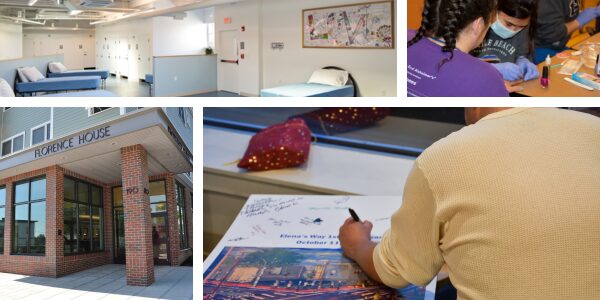What does a low-barrier shelter look like?
At a time when unsheltered homelessness is increasing exponentially in our community and the shortage of low-barrier shelter beds has created a state-wide homelessness crisis, Elena’s Way and Florence House are a model for how we can take care of the most vulnerable people in our community.
The staff are doing a great job. They really care. They want to get involved in people’s lives and help them for the better.
Anonymous
Elena’s Way and Florence House are two of Maine’s five privately operated, low-barrier shelters that provide the intensive services and supports that people, who are unsheltered with complex needs, require. Low-barrier shelters like Elena’s Way and Florence House, do not require background checks, credit checks, or income verification, previous program participation, sobriety, or ID for access to services. Low-barrier shelters provide services to people experiencing mental or behavioral health challenges and/or substance use disorders – they are the first place that people can go to begin the process of recovering from homelessness.
All shelter staff at Elena’s Way and Florence House are trained in social work assessment and use established social work best practices in their approaches, interactions, and interventions. The principles of harm reduction, client-centered care, and strengths-based social work are essential tools for staff and critical to establishing a trauma-informed and therapeutic environment. Serving as the ‘emergency room’ in the shelter-to-housing continuum, low-barrier shelters are directly on the frontlines of Maine’s opioid crisis. Every ten days, a client at one of Preble Street’s programs experiences an overdose. Additional staff are needed for low-barrier shelters because of the intensity of the work, which includes regular overdose prevention and the thoughtful, intensive aftercare that comes after an overdose.
Elena's Way & Florence House 2023 Statistics
Elena's Way
Florence House
What does low-barrier really mean?
“What I want people to know is that the people that we’re serving have extremely complicated lives and behaviors,” shares Henry Myer, Program Director, Elena’s Way. “It’s not because they can’t fit into the box that we’ve built for them…it’s because of all of the trauma and other stuff they’ve experienced. The box has to be flexible. At Elena’s Way, we built this structure and then we immediately start to bend and flow with our clients.”
“One hundred percent of Elena’s Way clients have a mental illness and/or substance use disorder. One hundred percent. And the vast majority of those get no clinical treatment whatsoever.”
Henry Myer, Program Director, Elena’s Way
One of the most significant challenges for staff at Elena’s Way has been navigating a dysfunctional mental health system in an attempt to get clients with severe mental health issues the right care. Elena’s Way has clients who need a higher level of care than what Elena’s Way can offer, but the pathways to obtaining the right level of care have so many barriers that the end goal can seem unobtainable.
But, there are also signs of hope and impact at Elena’s Way. Any outreach worker who has worked in Portland for long enough could review a list of Elena’s Way clients and identify that most of them have been outside for many years; this shelter is a home for people with significant histories of homelessness with nowhere else to go. Watching these individuals settle into a safe environment is nothing short of miraculous.
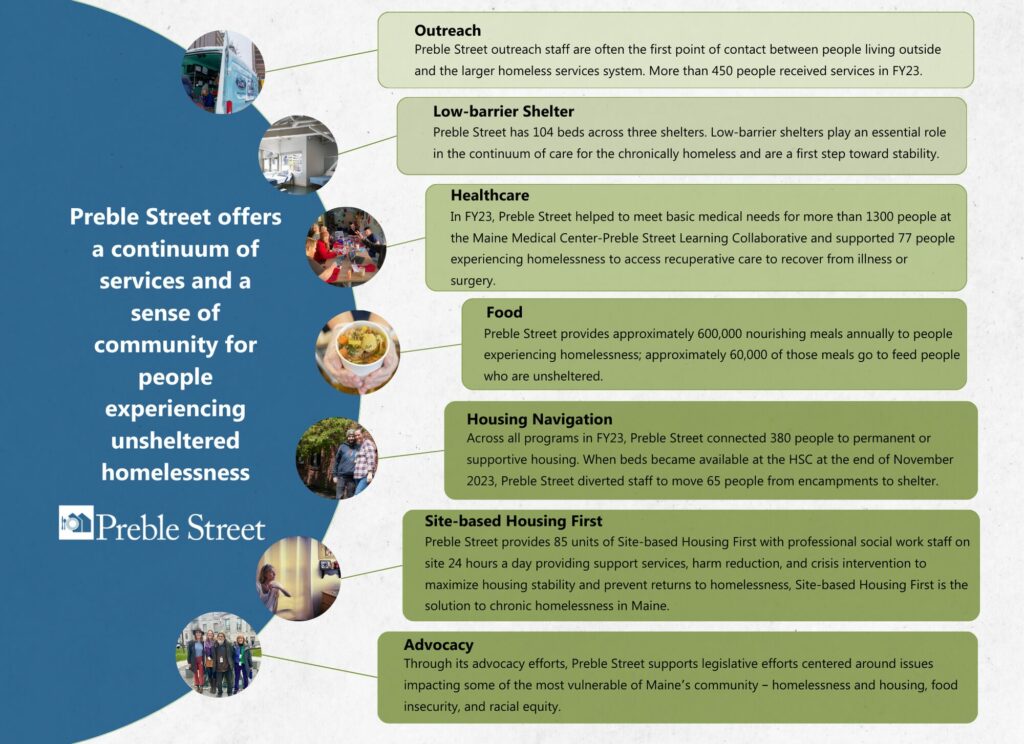
At Florence House, having a curfew prevented some women from being able to access shelter. For some people, a curfew impacts their employment; for others struggling with complex issues, curfews are simply difficult to adhere to. This past year, to make the program more accessible and to lower barriers for women experiencing homelessness, Florence House stopped having a curfew. Instead, the 3rd shift team keeps track of who is in the shelter throughout the night. “Getting rid of curfew has helped many folks remain successful at Florence House,” shares Emma Donnelly, Program Director. “By making that change, we empower the people accessing services to be the decision-makers about how to meet their needs best.”
It took me a while to get comfortable enough to leave my tent and access the shelter. I kept missing my intake, but they were willing to work with me. In the first two weeks, I only spent a few nights inside. Now I spend every night there. This flexibility was important for me in transitioning from living outside into a shelter.
Anonymous
“Something else that we are proud of is changing our process for accessing a shelter bed,” adds Donnelly. “It’s now 100% self-referral. Providers may assist clients in calling us, but it is not a requirement for seeking shelter here, which was a previous requirement for being assigned a permanent shelter bed. This was proving to be a significant barrier for folks, and changing this process has made our emergency shelter more accessible and has broadened our reach, especially for super disconnected people.”
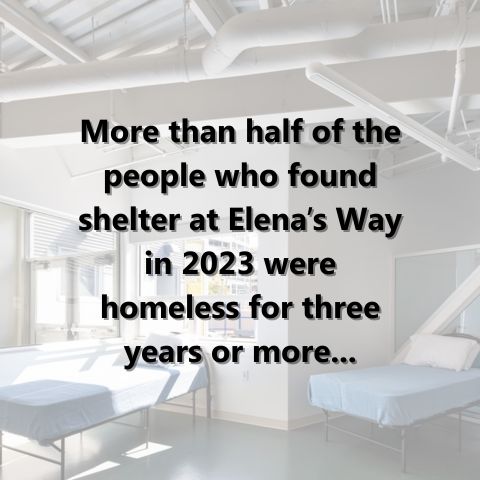
Unfortunately, the future of Maine’s low-barrier shelters is at risk due to a lack of an ongoing and sustainable revenue stream. Hope House Shelter, a 64-bed, low-barrier shelter in Bangor owned and operated by Penobscot Community Health Center (PCHC), is on track to close in October 2024 due to the lack of sustainable funding revenue. Preble Street also faces considerable long-term funding challenges with Elena’s Way and Florence House. Preble Street is exploring the possibility of taking over operations of Hope House to prevent its closure and the impacts that will be felt across the state, but that cannot happen without sustained state funding for all low-barrier shelters.
Funding that will make a difference for low-barrier shelters
On April 22, 2024, Governor Janet Mills signed the supplemental budget into law, which includes three years of $2.5M in annual funding — a total of $7.5M — to directly support emergency low-barrier shelters. This funding will be incredibly impactful for Maine’s five privately operated, low-barrier shelters.
Learn more
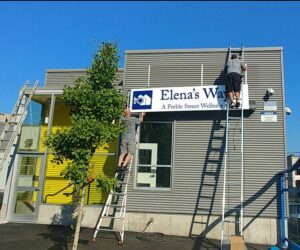
Community solutions for community problems
March is National Social Work month, and we are sharing some of the experiences of Andrew Bove (he/him), VP of Social Work at Preble Street. Below Andrew reckons with the challenges posed by the opioid epidemic, the COVID-19 pandemic, the housing crisis, and how these things have stressed an already disjointed and dysfunctional health system.

Housing People Takes Investment, Not Magic
We have said before that the reasons why people experience homelessness are complex, but the solutions are not. Ensuring that people can access stable and safe housing and maintain that housing is the solution to homelessness. Preble Street created its Rapid Re-Housing program (RRH) in 2020 to move more people from homelessness to permanent housing.
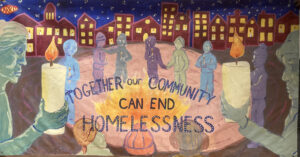
What will it take to end Maine’s homelessness crisis? Curbside: Winter 2023/24
Many communities across the United States are struggling with how to respond to the growing number of people who are experiencing unsheltered homelessness. Thanks to the pandemic, along with the lack of affordable and available housing and shelter, Maine is one of those places. All of us agree that people living in tents and encampments
